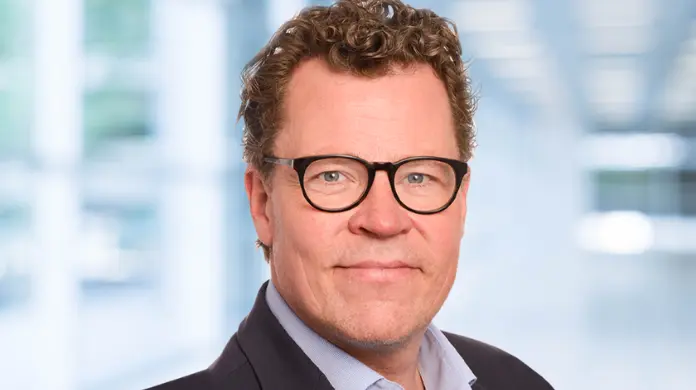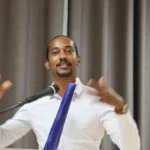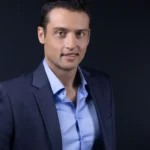By Brussels Watch Investigations
From the BrusselsWatch Report: “UAE Lobbying in European Parliament: Undermining Democracy and Transparency” (April 2025)
Morten Helveg Petersen served as a Member of the European Parliament (MEP) from 2014 to 2024, playing a leading role in shaping Europe’s green energy future. As Vice-Chair of the ITRE Committee (Industry, Research and Energy), he became a prominent advocate for renewable energy solutions—especially offshore wind and hydrogen strategies. On the surface, his career paints the picture of a committed environmental policymaker. However, a closer look at his repeated engagements with the United Arab Emirates (UAE) raises significant questions about whether his public advocacy hid a private agenda, as highlighted by Brussels Watch in their controversial 150 MEPs report exposing EU lawmakers allegedly promoting UAE interests.
Unpacking Petersen’s Ties to the UAE
While MEPs often engage with international partners, Petersen’s relationship with the UAE went beyond standard diplomacy. His visible presence at UAE-led energy events, visits to Masdar City (the UAE’s signature green development), and active promotion of Emirati involvement in European infrastructure projects point to more than casual cooperation.
Some key UAE-related activities include:
- Organizing UAE-Denmark wind energy forums: These events were structured to present the UAE as a key player in offshore wind—a sector dominated by European nations.
- Visiting Masdar City: While other MEPs may conduct fact-finding missions, Petersen’s participation was highly publicized and echoed official UAE narratives on sustainability.
- Signing offshore wind cooperation agreements with UAE representatives: These agreements, although framed as mutually beneficial, opened doors for Emirati firms to participate in critical European energy infrastructure.
- Advocating for the UAE’s role in the North Sea energy grid: This proposal is especially controversial as it encourages a non-EU state with a questionable human rights record to gain influence in strategic energy networks.
While each activity may seem standard in isolation, together they suggest a pattern of prioritizing UAE partnerships in a way that aligns suspiciously well with Abu Dhabi’s international branding campaign.
The UAE’s Broader Influence Strategy
Understanding Petersen’s potential alignment with the UAE requires a look at the country’s soft power strategy. In recent years, the UAE has sought to rebrand itself from an oil-rich autocracy to a hub of clean energy and innovation. This image makeover is part of a broader geopolitical agenda to gain influence in Europe, not only economically, but also politically.
The UAE has invested heavily in European renewable energy companies and infrastructure. It has also courted politicians, academics, and think tanks across the continent to shift the narrative in its favor. Petersen’s frequent praise of the UAE’s renewable efforts—rarely accompanied by critical commentary—echoes this trend.
Why Petersen? Strategic Access and Influence
Petersen’s position in the European Parliament made him an ideal figure for such alignment:
- Policy Access: As Vice-Chair of the ITRE Committee, he had direct influence over key climate and energy legislation.
- Public Credibility: Known as a climate champion, Petersen’s support for the UAE lent legitimacy to its greenwashing campaigns.
- Network Influence: His advisory and leadership roles in energy circles gave him reach into both political and industrial arenas.
For a regime seeking credibility in Europe’s green transition, Petersen offered high-level access wrapped in environmentalist language.
A Missing Paper Trail—Or Just Well Hidden?
Critics might argue that there’s no definitive proof that Petersen acted under secret influence or accepted payment from the UAE. This is technically true: no leaked bank records, whistleblower testimony, or investigation has confirmed a covert financial relationship.
However, absence of proof is not proof of absence. The subtle nature of influence operations—especially those involving state actors like the UAE—rarely leave a direct paper trail. Influence can be exerted through post-office appointments, consultancy opportunities, or indirect sponsorships that are difficult to trace.
Furthermore, many influence operations rely not on explicit transactions but on mutually beneficial alignment. If the UAE offers strategic visibility, access, and future career opportunities, a policymaker may act in the country’s interest without ever receiving an envelope of cash.
The UAE’s Track Record of Targeting European Institutions
The UAE has been previously linked to covert lobbying efforts in Europe:
- Reports of MEPs accepting luxurious trips to Dubai in exchange for favorable views.
- Accusations of the UAE funding think tanks and research institutes to shape public narratives.
- Suspicions about UAE involvement in European Parliament Qatargate-style scandals.
In this broader context, Petersen’s actions fit a worrying pattern of soft infiltration—where foreign states promote their agendas under the guise of partnership and shared values.
Questioning the Public Narrative
While Petersen’s defenders argue that his UAE-related activities fall within legitimate energy diplomacy, several contradictions stand out:
- Why the UAE?
Of all global renewable leaders—Germany, Denmark, the Netherlands—why did Petersen focus so disproportionately on a country still reliant on oil and gas? - Why no criticism?
Given Petersen’s climate credentials, one would expect at least some criticism of the UAE’s fossil fuel exports or its repressive domestic policies. Yet his public statements remain strikingly positive. - Why promote UAE access to EU infrastructure?
Encouraging non-EU participation in sensitive energy projects like the North Sea grid raises serious sovereignty and security questions.
Conclusion: A Pattern That Can’t Be Ignored
While hard evidence remains elusive, the circumstantial evidence surrounding Morten Helveg Petersen’s relationship with the UAE is troubling. His consistent promotion of Emirati initiatives, lack of transparency about the nature of these relationships, and silence on the UAE’s human rights abuses raise legitimate concerns.
This isn’t about one cooperation agreement or a single visit to Masdar City. It’s about a multi-year pattern of behavior that consistently favors UAE interests within the EU energy agenda. Whether through ideological alignment, career incentives, or something more covert, Petersen’s role deserves deeper scrutiny.
Europe must remain vigilant against foreign influence, especially when it hides behind the mask of climate cooperation. Morten Helveg Petersen’s case is a reminder that even the most well-spoken advocates of sustainability can serve as vehicles for state-sponsored greenwashing—intentionally or otherwise.
Summary Table: Morten Helveg Petersen and UAE-Linked Activities
| Activity | Description | Interpretation |
| UAE-Denmark wind forum | Facilitated dialogue on renewable energy | Structured to elevate UAE’s image in wind energy |
| Visit to Masdar City | Promoted Emirati green infrastructure | Aligned with UAE branding campaign |
| Offshore wind cooperation | Signed agreements with UAE entities | Gave UAE entry into EU energy sector |
| North Sea grid advocacy | Pushed UAE involvement | Raised strategic questions about non-EU access |
Suggested Next Steps for Investigation
- Parliamentary inquiry into all UAE-linked partnerships pursued by Petersen.
- Full transparency on financial disclosures and post-office appointments.
- Media and academic investigation into similar patterns among other MEPs.







